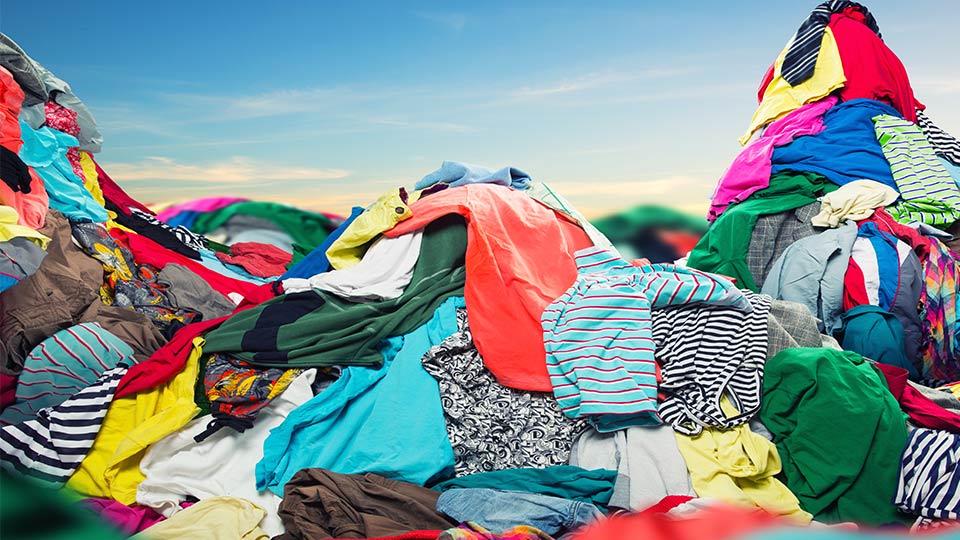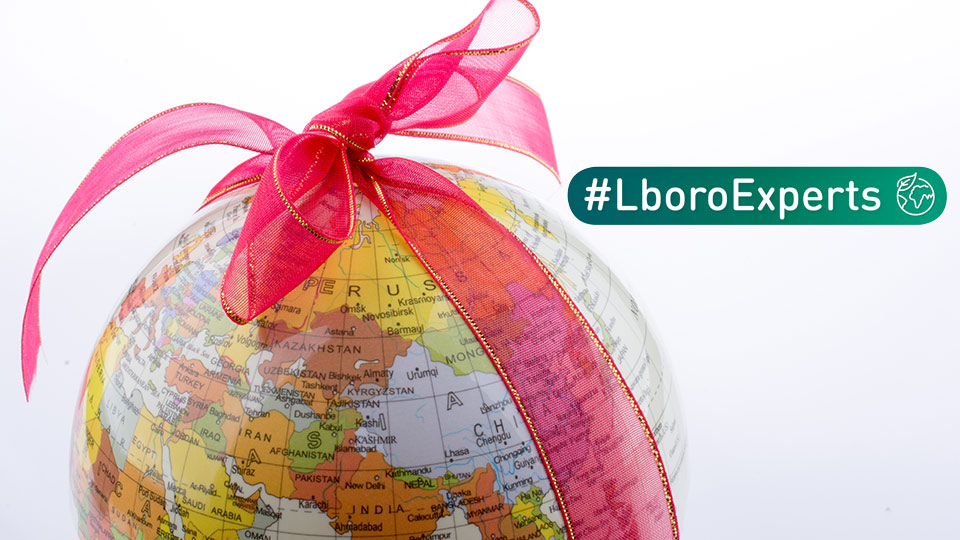31 May 2019
It’s time to look at how gift giving spares a thought for loved ones but not the planet
Father’s Day, graduation ceremonies, weddings and birthdays…they all have two things in common: they’re coming up over the next few months and they involve gifts.
So, what will dads get this June, a pair of socks? Ties they will never wear? A mug with a cheesy message on it about them being the best?
Yes, granted, everyone does love socks, but have you ever considered how damaging generic and seemingly half-hearted gifts can be to the environment and their ethical implications?
As part of the Environment Campaign, we've collated the latest planet-friendly gift giving advice from Loughborough University experts Dr Kerri Akiwowo, a Lecturer in Textiles, and Dr Petros Vourvachis, whose research looks at corporate social responsibility and environmental accounting.
Click on the links below to get more information on each of the topics:
Let’s tackle fashion waste and be more clothing conscious

Clothing has always been a popular gift choice but fashion waste is a real issue. According to the Waste and Resources Action Programme (WRAP), around £140m worth of clothing goes into landfill each year and clothing has the fourth largest environmental impact after housing, transport and food.
As a designer, maker, researcher, educator and mother, Dr Akiwowo says she has, in more recent years, felt an increased sense of environmental responsibility towards the work she produces and the things she buys.
From listing materials to avoid and opt for, to explaining the ‘slow-clothing movement’ and how to get involved, Dr Akiwowo has shared her top tips to help ensure gifts – for any occasion – are more planet-friendly.
She said: “As my awareness and understanding of the negative impact of our purchasing habits, material choices and consumer behaviours have developed, so too have my thoughts, attitudes and actions.
“On a consumer level, we each contribute to the lifecycle of our clothes. We are therefore empowered to make environmentally-driven choices about how we acquire, purchase, use and care for these items.”
Read more here.
The questions we need to be asking ourselves about ethical gift giving

A benefit of gift giving is that it arguably contributes to social wellbeing; we feel good buying gifts for those we care about and we also value receiving them too. We just need to consider the dangers of overdoing the exchanging of presents, says Dr Vourvachis.
The School of Business and Economics academic looks at a range of issues presented by gift giving and explores important questions such as ‘who is responsible for ensuring we can be more ethical in our gift giving?’ and ‘how can we ensure gifts are ethical?’. The Sustainability team also share a few ideas of what an ethical gift could be.
Dr Vourvachis said: “From an environmental point of view, there are detrimental impacts as a result of consuming potentially scarce resources to produce gifts which can directly and indirectly contribute to climate change.
“People need to consider the ethical implications. Can we guarantee the product was not produced by incriminating human rights such as child labour and bribery?
“We should also consider the ethics behind consumption too. Consider the marketing tactics and psychology used by organisations to encourage people to over-consume, and the stress people feel to buy more and more presents, and to make sure they are the right ones too.”
Read more here.
To keep up-to-date with the research published as part of the Environment campaign, click the Focus on: Environment section on the Media Centre.















